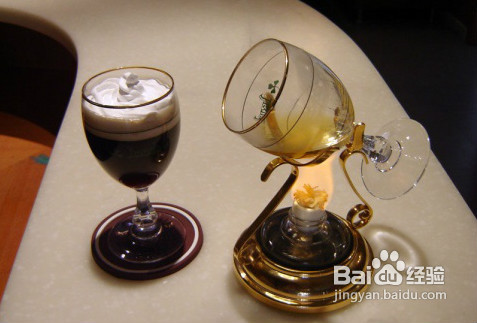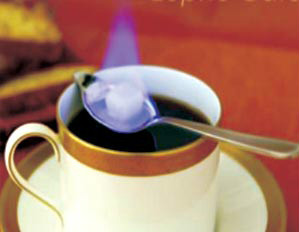Aromatic Burundi Fine Coffee Flavor Taste Manor Features
Burundi is one of the least developed countries declared by the United Nations. The economy is dominated by agriculture and animal husbandry. More than 90% of the country's population is engaged in agriculture and animal husbandry, and the main food crops are corn, rice, sorghum, potatoes, plantains and so on. The main cash crops are coffee, tea, cotton and so on. Animal husbandry has declined in recent years. The main industries are agricultural products processing, textiles, cigarettes, power generation and so on.
The soil in Burundi is red soil, and the climate is also suitable for coffee cultivation. There is the most varied and successful coffee industry in the world. Almost all coffee produced in Burundi is Arabian coffee beans, while coffee trees in Ngozi are planted at an altitude of 1,200 meters. Burundian coffee is fragrant and has excellent acidity.
Lake Tanganyika
Lake Tanganyika, located at the southern end of the western branch of the East African Rift Valley, is the second largest lake in East Africa. With a length of 720km from north to south, it is one of the longest freshwater lakes in the world, with a depth of 1470 meters, second only to Lake Baikal and the second deepest lake in the world. The area is 32900 square kilometers.
Lake Tanganyika, which is narrow in the north and south, is formed by the fault and subsidence of the earth's crust. The only outlet of the lake is the Lukuga River.
Encourage
Burundians like to play drums and use drums as a symbol of the ancient kingdom. On major festivals, people beat drums to celebrate. Drum dance is a kind of folk dance that people like. Wearing red and white robes when dancing, while dancing, knock 1 to deal with
Burundian coffee was first brought in by the Germans in the 1900s; they found that bourbon was the most suitable for growing in the local climate, which is usually a "tropical" plateau climate with a very large temperature difference between day and night. However, due to the suspension of investment in coffee research, bourbon has become the only coffee variety left in the country and has been treated with "full washing".
The development of boutique coffee needs continuous breakthrough and innovation. In 2014, Long Miles Coffee Project (LMCP) began to use sun treatment and honey treatment for their coffee, which made professional coffee cup testers overjoyed at the taste of the coffee. According to Miss Gu Qinru, head of Latorre & Dutch Coffee Asia, "usually we can drink citrus and plum flavors in washed Burundian coffee. And this is our first cup of Burundian coffee treated with sun and honey. Its flavor turns into more complex strawberries, grapes and tropical fruits. It seems that treatment is critical to the taste of coffee. Traceability is a common problem faced by coffee growers, raw bean buyers and coffee roasters. There are currently about 3500 families working for LMCP. Production harvesting areas are distributed on eight different hilltops and two processing plants-Bukeye (operational in 2013) and Heza (operational in 2014). There are many variables that affect the quality of the final beans. For example, each mountain has a different microclimate, which in turn affects the growth, picking and handling of coffee fruits, and varies from day to day. Nathan James Johnston, the boss of Cartel Coffee Roasters in Australia, said: "working with Long Miles, we can know exactly where, when and who picked the coffee, which means a lot to us.

Important Notice :
前街咖啡 FrontStreet Coffee has moved to new addredd:
FrontStreet Coffee Address: 315,Donghua East Road,GuangZhou
Tel:020 38364473
- Prev

Introduction to the characteristic varieties and Brands of Uganda Fine Coffee Bean Flavor
In 1890, British troops invaded Buganda. Captain Frederick Frederick Lugard, the agent of the Royal British East Africa Company (later Governor of Hong Kong Luigi), forced King Mwaanga of Buganda to sign protection treaties with him twice. In June 1894, the British government signed the New Testament with Buganda, and Buganda officially became a British protectorate. Then, in 1896, Britain extended its protection to Ukraine
- Next

Introduction to Puerto Rico Coffee Manor with Rosemary Flavor
The Caribbean Sea is a warm, romantic and mysterious sea, and a lot of good coffee is also around this ring sea, such as the Blue Mountains of Jamaica, Dominica, Crystal Mountain of Cuba, Yuko of Puerto Rico and so on. These are the most famous rare and expensive coffee in the world. These island beans give people a light smell of milk and elegant flowers, delicate and soft acidity, although it is still difficult to avoid coffee caused by the island's muggy climate.
Related
- Detailed explanation of Jadeite planting Land in Panamanian Jadeite Manor introduction to the grading system of Jadeite competitive bidding, Red bid, Green bid and Rose Summer
- Story of Coffee planting in Brenka region of Costa Rica Stonehenge Manor anaerobic heavy honey treatment of flavor mouth
- What's on the barrel of Blue Mountain Coffee beans?
- Can American coffee also pull flowers? How to use hot American style to pull out a good-looking pattern?
- Can you make a cold extract with coffee beans? What is the right proportion for cold-extracted coffee formula?
- Indonesian PWN Gold Mandrine Coffee Origin Features Flavor How to Chong? Mandolin coffee is American.
- A brief introduction to the flavor characteristics of Brazilian yellow bourbon coffee beans
- What is the effect of different water quality on the flavor of cold-extracted coffee? What kind of water is best for brewing coffee?
- Why do you think of Rose Summer whenever you mention Panamanian coffee?
- Introduction to the characteristics of authentic blue mountain coffee bean producing areas? What is the CIB Coffee Authority in Jamaica?

